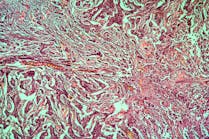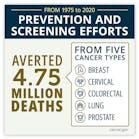Researchers at The University of Texas MD Anderson Cancer Center showed that altering the sequence of breast cancer treatment to administer radiation before mastectomy allowed for concurrent breast reconstruction surgery, which reduced the number of operations required, minimized treatment delays and improved patient satisfaction.
The Phase II trial results, published in JAMA Network Open, evaluated 49 patients who received radiation therapy followed by mastectomy with immediate breast reconstruction. There were no complete flap losses or disease recurrences at a median of 29.7 months of follow-up.
Currently, when planning breast reconstruction for patients needing radiation therapy after mastectomy, the main goal is to prevent radiation from reaching the final reconstruction. This is done to reduce long-term side effects and to ensure patients are happy with the results. Typically, women have a tissue expander placed during their mastectomy procedure, which is expanded with saline. This is followed by approximately six weeks of daily radiation therapy to the remaining chest wall and lymph node tissues. Final reconstruction is typically deferred until 6-12 months after radiation.
During the time between radiation and final reconstruction, there are negative quality-of-life effects from not having a reconstructed breast and potential negative medical effects from the tissue
The study enrolled women from participants in the SAPHIRE trial. The median age was 48 years, and 94% of patients had received neoadjuvant systemic therapy. Twenty-four patients were randomized to receive short course (40.05 Gy/15 fractions) and 25 to receive standard course (50 Gy/25 fractions) radiation therapy to the chest wall and regional lymph nodes. Patients underwent mastectomy with immediate breast reconstruction surgery, at a median of 23 days after completing radiotherapy.
The rate of surgical complications after the operation was similar to the complication rate from standard-of-care reconstructive surgery, showing a favorable comparison. Patients who underwent hypofractionated (short course) radiation therapy exhibited similar complication rates to those receiving conventional (standard course) radiation therapy. All the patients who underwent tissue-based reconstruction had successful reconstructive surgeries and none of these patients had any serious complications in follow-up.





